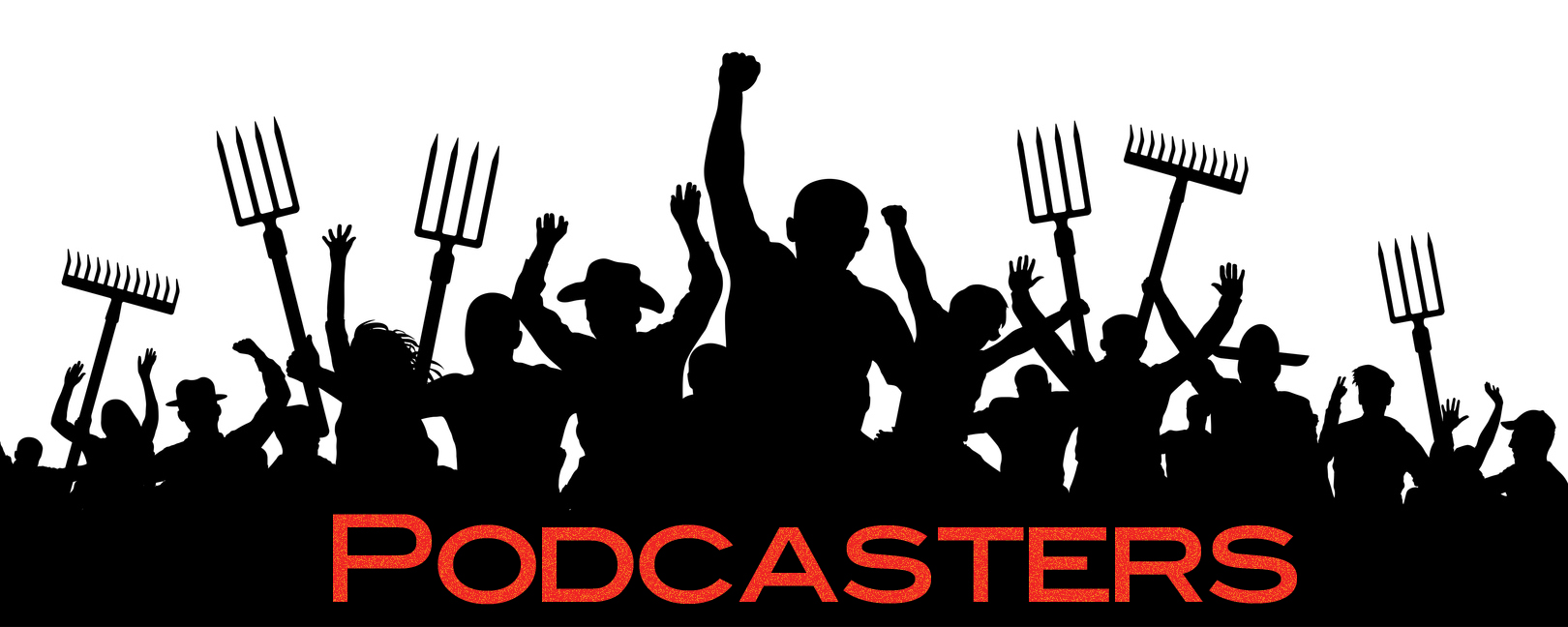
Recently, the start-up company Luminary, armed with $100 million in venture capital, unveiled its new podcast app. For weeks, the media had been asking if Luminary could find success as “the Netflix of podcasting”: a subscription service that charged $8 per month for access to shows that you can’t get anywhere else. Luminary paid top dollar for premium podcasts by established talents like Trevor Noah (of The Daily Show), Adam Davidson (of Planet Money), and Guy Raz (of How I Built This). Canary yellow ads pelted podcast listeners on social media, ramping up to the big launch. Then, at long last, the day arrived…
And the rollout was a disaster.
The Luminary app doesn’t just include its premium shows; the company scraped the internet for all of the free podcasts it could find, making them available in the app as well. The hope was that people would use the app to listen to their favorite free podcasts, and could then be upsold to a premium subscription. Unfortunately, Luminary messed with these podcasts in ways that created an immediate backlash. Here’s why:
First, Luminary chose to speed up the delivery of episodes to its users by caching them using overseas servers. This messed with the stats that podcasters use to monetize their shows.
Second, when the Luminary app imported the “shownotes” — the text that accompanies each episode — it removed all of the hyperlinks. Many podcasters rely on these links to direct their listeners back to advertisers. This was viewed as a second assault on podcasters’ livelihoods.
Finally, Luminary included podcasters’ shows in its app without asking for permission. Normally, this isn’t a huge issue; generally speaking, many podcasters take the attitude that the more places people can access their shows, the better. There was no outcry when Google began indexing shows last year to make them accessible from its Google Podcasts app. But with Luminary, podcasters cried foul.
Almost immediately, high profile podcasters and podcast networks demanded that their shows be removed from the company’s directory. Even before the launch, The New York Times requested that The Daily not appear in the app; Spotify’s shows would also be absent. Once the app launched, more high-profile podcasters joined in the exodus, including Joe Rogan and shows in the PodcastOne network. The uproar on Twitter was deafening. The internet headlines were just as devastating:
- The Verge: “Podcast Startup Luminary’s Launch Week Keeps Getting Worse“
- Vulture: “How Luminary’s Messy Debut Ended Up Roiling the Podcast Industry“
- PodNews: “Not a Very Good Week“
- Podcast Business Journal: “Is Luminary Bound to Fail?“
Luminary now looks like more like the New Coke of podcasting than the Netflix of podcasting.

There were, of course, early red flags. In March, the company tweeted a meme of a bunny holding a sign that said, “Podcasts Don’t Need Ads.” Hard-hustling podcasters were not amused. The company apologized, but that first impression laid the groundwork for the future backlash.
Even as the app’s initial rollout was going downhill, Luminary’s tone struck many as passive aggressive. For example, listeners who found themselves looking for The Joe Rogan Experience instead saw this message:
The Joe Rogan Experience is not available on the Luminary service at this time. At Luminary, we’re investing in technology to improve podcast listening for fans like you so we built a free app that welcomes hundreds of thousands of public RSS feed podcasts. This publisher has chosen not to take advantage of this free distribution. Head to our homepage for other great podcasts we recommend.
While the company took steps to address the caching problem, it defended the practice of removing links from shownotes, citing “important security reasons.” By this point, however, the image of Luminary as Silicon Valley vultures looking to profit off of the work of independent podcasters had taken hold, and many dismissed the justification as disingenuous. The podcast community at large was now rooting for Luminary to fail.
The Lesson for Radio Broadcasters
At its core, Luminary’s sin is that of hubris. It pushed its way into a community that’s existed for more than a decade without fully understanding the ethos. None of the issues that Luminary ran into during its launch are new, and there are plenty of experts in the space who could have foreseen these problems. Luminary seems to have assumed that if your checkbook is big enough, that’s an adequate substitute for experience. It’s not.
Radio broadcasters and other large companies embracing the podcasting medium should view Luminary as a cautionary tale. Broadcasting and podcasting share a lot of common ground, but being an expert in one doesn’t automatically make you an expert in the other. Broadcasters would be wise to tread lightly, invest the proper time toward learning the ropes, and do so with humility.
As more large companies have plunged into the podcasting space, I have heard more grumbling from rank-and-file podcasters. They’re not without justification. After all, there have been false promises: Not long ago, a Silicon Valley giant boasted that it could double podcast listening. Spoiler alert: They haven’t.
There have also been attempts to generate revenue without fairly compensating podcast creators. Even now, I hear rumors of companies looking to insert absurd commercial loads into shows they deliver but don’t own.
There have also been dubious claims: I’ve heard numerous respected podcasting experts question the assertions found in press releases from companies claiming to be the first this or the biggest that, without any recognition of those who blazed the trail before them.
I get it. We’re radio broadcasters. And to a certain extent, we’ve long been hype artists. But the podcasting community is one that values data, transparency, and cooperation. If we want to play in this space, we should recognize and embrace those values, too. We ought to take inspiration from those that have contributed to the podcasting community in ways that have earned respect, including Adam Carolla, NPR, and Edison Research.
When all is said and done, the question Luminary answers probably won’t be the one we originally asked. Can a subscription model work for podcasting? If Luminary fails, we won’t know if it’s because the central concept was flawed, or if their execution was riddled with arrogance, missteps, miscalculations, and errors.
Companies make mistakes. There’s no shame in that. The problem comes when those mistakes are accompanied by arrogance and a lack of regard for your peers. The real lesson from Luminary is this:
You don’t just want to be the winner; you want to be the winners that other people root for.
- A Simple Digital Treat to Thank Your Radio Listeners This Thanksgiving - November 13, 2023
- Interview Questions When Hiring Your Radio Station’s Next Digital Marketing Manager - November 6, 2023
- A Radio Conversation with ChatGPT: Part 2 – Promotions - October 30, 2023





Leave a Reply